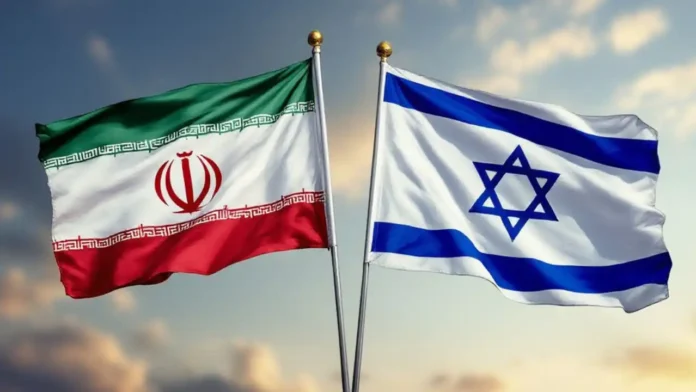In a significant development, diplomatic sources revealed on Friday that Iran has sent a clear message to Israel through European intermediaries, outlining its potential response to any future Israeli military action.
According to Asharq Al-Awsat, the message, while indirectly communicated, signals Tehran’s willingness to tolerate a limited Israeli strike without retaliation.
However, the stakes drastically change if Israel were to target Iran’s critical nuclear or oil infrastructure.
The message highlights Tehran’s red lines, emphasizing that while minor strikes may not provoke an immediate response, any attack on its nuclear facilities or oil reserves would compel Iran to retaliate forcefully, breaching previously established thresholds.
This stark warning underscores the heightened tensions between the two nations, with Iran positioning itself for a decisive response if its vital interests are threatened.
Rising Diplomatic Activity Amid Regional Tensions
The revelation of this communication comes amid a flurry of diplomatic efforts by Iran, as it seeks to manage the potential fallout of its recent missile strike.
According to sources cited by CNN, Tehran is in talks with several Middle Eastern countries, attempting to gauge whether they can help moderate Israel’s response to its earlier military actions.
Iran’s anxiety is reportedly rooted in uncertainty over the extent to which the United States can influence Israel’s decision-making, particularly concerning potential strikes on Iranian nuclear and oil sites.
The concerns have also been exacerbated by the weakening position of Hezbollah, Iran’s key ally in the region, following recent Israeli military operations.
This shift in the regional power balance has further heightened Tehran’s sense of vulnerability, as it faces both external and internal pressures.
Tehran’s Fear of a Targeted Strike on Nuclear Facilities
Alex Vatanka, a U.S.-based analyst, recently told the Eye for Iran podcast that the Iranian government is particularly worried about a potential strike on its nuclear facilities.
Iran views its atomic program as its most significant achievement over the past 45 years, and any damage to it would be seen as a severe blow to the nation’s prestige and security.
The possibility of an Israeli attack on this critical infrastructure has spurred Tehran to ramp up its diplomatic efforts across the region.
Iran Appeals to Arab Neighbors Amid Israeli Threats
As tensions escalate, Iran has been urging its Arab neighbors not to allow Israel access to their airspace for any potential strikes.
Two Arab diplomats told NBC News on Friday that Iran has been actively lobbying countries in the Gulf, particularly members of the Gulf Cooperation Council (GCC), to refuse any Israeli military use of their airspace.
“The GCC is focused on de-escalation and does not want to be caught in the crossfire,” one diplomat commented. Despite the growing tension, it appears unlikely that any Arab nation would grant Israel such access, given the risks involved.
Many Arab nations, including Jordan and the United Arab Emirates, host significant U.S. military bases and key oil facilities, raising concerns that these sites could become targets in the event of regional escalation.
However, regional experts believe that these countries are more inclined towards maintaining stability and avoiding involvement in direct military conflict between Iran and Israel.
U.S. Denies Ceasefire Talks Amid Ongoing Speculation
Amid these rising tensions, reports surfaced earlier in the week that regional countries and the United States were engaged in discussions to broker a broader ceasefire agreement.
However, the U.S. State Department quickly refuted these claims, stating on Wednesday that no such proposal was currently on the table.
A department spokesperson clarified, “There is no plan or proposal for a ceasefire to my knowledge. While I cannot speak for what other countries may be working on, the United States is not engaged in any talks regarding such a proposal at this time.”
The diplomatic back-and-forth between Iran, Israel, and other regional players signals a critical moment in Middle East geopolitics.
With Iran’s nuclear and oil infrastructure at the heart of the tension, any escalation could have far-reaching consequences for both regional stability and global energy markets.
As Tehran seeks to navigate these challenges through diplomatic channels, it remains to be seen how the situation will unfold, especially with the involvement of major powers like the United States.





[…] Stanley Tucci, an acclaimed actor, and Hollywood icon, has shared an intensely personal and emotional account of his battle with cancer, a journey that not only tested his strength but also temporarily robbed him of one of his greatest passions—his ability to taste. […]